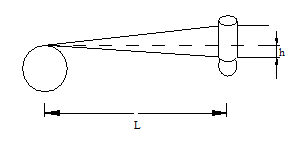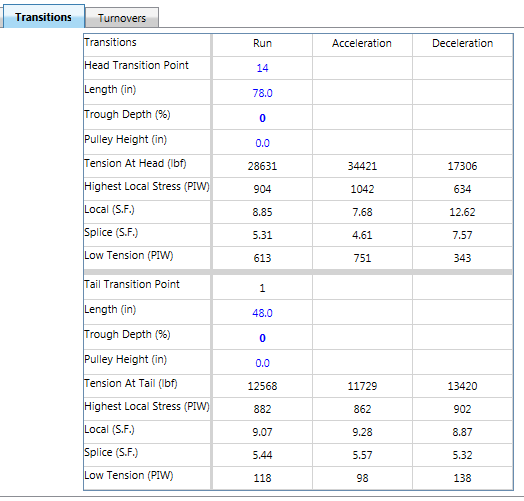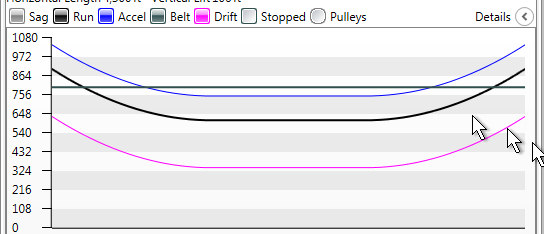|
<< Click to Display Table of Contents >> Belt Transition |
  
|
|
<< Click to Display Table of Contents >> Belt Transition |
  
|
Available in v12 and higher
Available in All versions
Updated in v14
Special belt tensions are introduced when the belt transitions from a troughed idler to a pulley where the belt is flat. The transition to the head and tail pulleys are typically the most critical.
Transitions can be evaluated In the Home > Belt > Transitions tab. The location of the pulleys is know from the flight segment from the profile.
Since the flattening of the belt may introduce abnormal belt tension the should be estimated and evaluated. The stress distribution across the belt is not uniform.
The user input to the transition design includes:
•Length from center of standard carry idler to center of pulley,
•Relative height from idler to pulley:
oeither as, top of pulley to percentage of Trough Depth of idler,
oor, Pulley Height relative to height of idler center roll.

A trough depth of 33% is typical for transitions at the discharge pulley.
The estimated tensions are shown on the transition table.

The cross-sectional tension at the idler are also shown on the main page tension curve for the selected transition.
